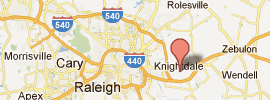Why does the sheriff come back after I designate exemptions?
A frequent point of confusion relates to what is happening when a deputy sheriff comes back seeking to execute on property after an exemption order has been obtained following a notice of right to have exemptions designated.
When a judgment debtor obtains an order designating exempt property, that order prevents the judgment creditor from selling the exempt property to pay the judgment. It does not prevent a judgment creditor from selling non-exempt property, nor does it stop the writ of execution process altogether. So, even after an exemption order has been obtained, the Sheriff will be still tasked with serving the writ of execution.
If a judgment debtor has been granted exemptions in all of his or her property, then there is nothing for the deputy sheriff to obtain by execution. When the sheriff visits or contacts the debtor, it is more or less a formality of confirming nothing is available to sell. Practice will vary by county. Sometimes, nothing more may be required than a brief verbal response that everything has been designated exempt.


